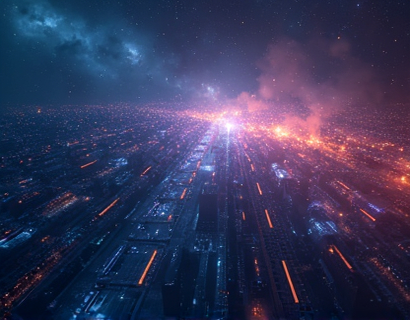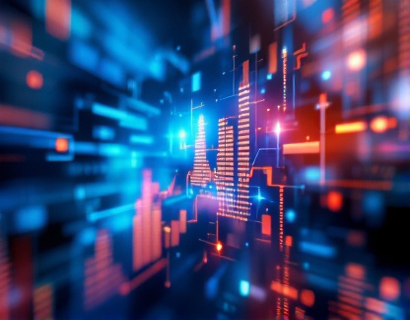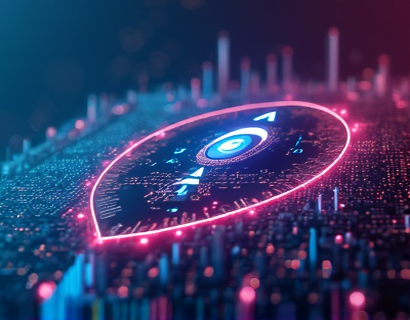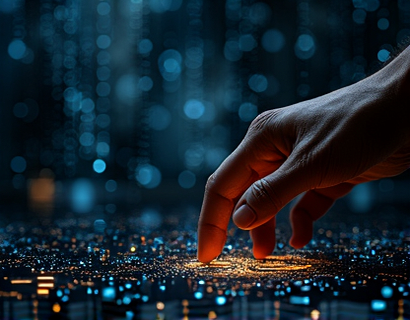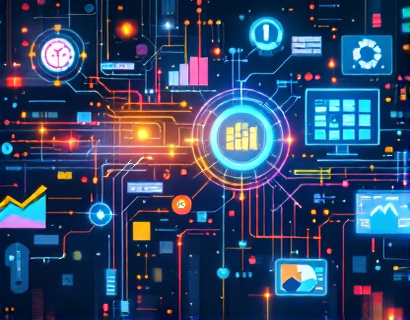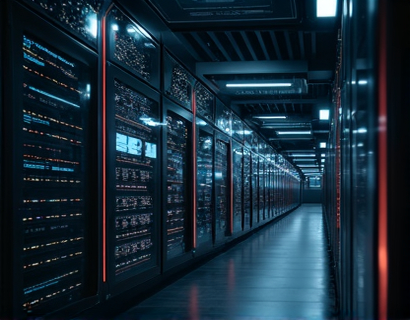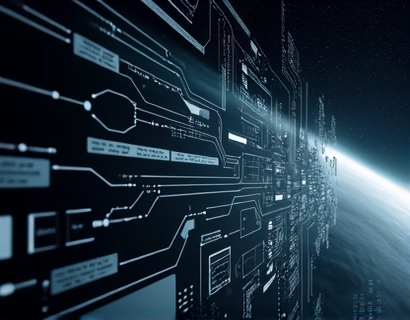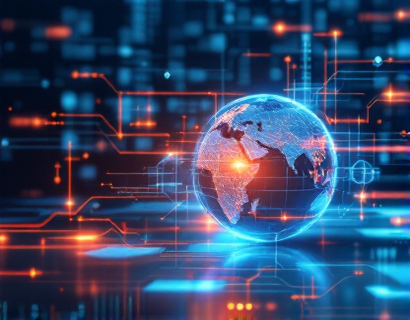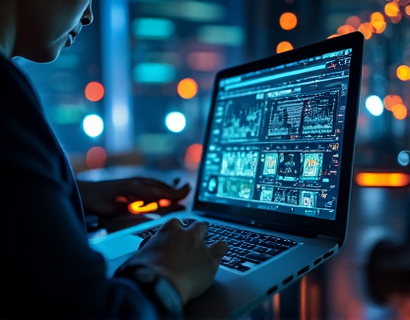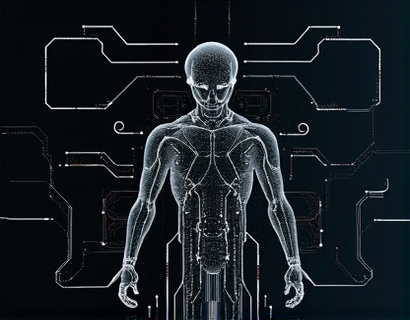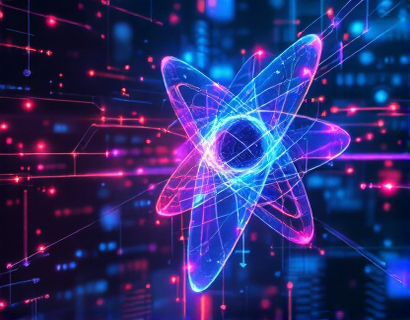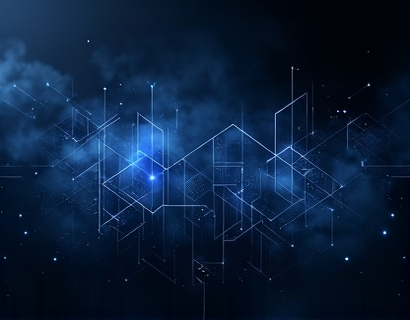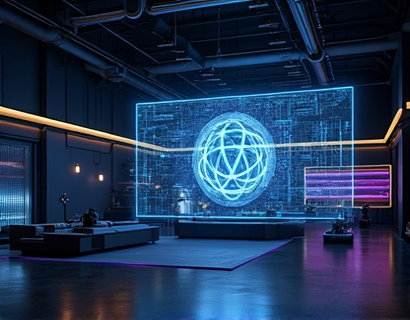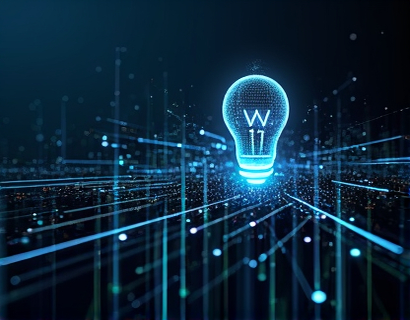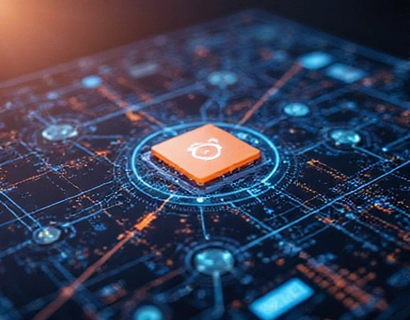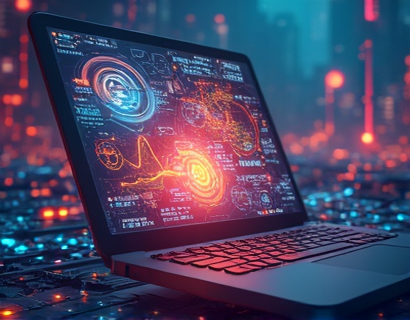Crypto and AI: Powering the Next Generation of Decentralized Applications
The intersection of cryptocurrency and artificial intelligence (AI) is giving birth to a new era of decentralized applications and services. This fusion is not just a technological curiosity but a transformative force that promises to revolutionize how we interact with digital systems. By combining the decentralized, secure, and transparent nature of blockchain with the advanced computational capabilities of AI, we are witnessing the emergence of a new paradigm in technology. This article delves into the profound impact of this merger, exploring how it enhances productivity, simplifies daily tasks, and paves the way for a more efficient and user-friendly digital landscape.
Understanding the Basics: Cryptocurrency and AI
To fully appreciate the synergy between cryptocurrency and AI, it's essential to understand the fundamental concepts of each. Cryptocurrency, exemplified by Bitcoin and Ethereum, is a digital or virtual currency that uses cryptography for security and operates on a decentralized network known as a blockchain. This decentralized nature ensures that no single entity has control over the entire network, making transactions secure and transparent.
Artificial intelligence, on the other hand, refers to the simulation of human intelligence processes by machines, particularly computer systems. These processes include learning (the acquisition of information and rules for using it), reasoning (using rules to reach approximate or definite conclusions), and self-correction. AI can operate autonomously or be guided by human input, and it is increasingly being integrated into various sectors, from healthcare to finance.
The convergence of these two technologies is particularly potent because blockchain provides a robust infrastructure for AI to operate on. The decentralized and immutable nature of blockchain ensures that AI systems can function without the need for a central authority, reducing the risk of data manipulation and enhancing trust among users.
Decentralized Applications: The New Frontier
Decentralized applications (dApps) are at the forefront of this technological revolution. Unlike traditional applications that run on centralized servers, dApps are built on blockchain networks, allowing them to operate without a single point of control. This decentralization brings several advantages, including increased security, transparency, and resilience against censorship and downtime.
One of the key features of dApps is their ability to leverage smart contracts, which are self-executing contracts with the terms of the agreement directly written into code. Smart contracts automate and enforce the rules of an application, reducing the need for intermediaries and lowering transaction costs. This automation is where AI comes into play, enhancing the functionality and efficiency of dApps.
AI-Enhanced Decentralized Applications
The integration of AI into dApps opens up a myriad of possibilities. AI can process and analyze vast amounts of data in real-time, providing insights and making decisions that would be impractical for humans to handle. In the context of decentralized applications, this means more intelligent, responsive, and user-friendly services.
For instance, in the realm of decentralized finance (DeFi), AI can optimize trading strategies, predict market trends, and manage risk more effectively. AI algorithms can analyze historical data and current market conditions to make informed decisions, all while operating within the secure and transparent framework of blockchain. This not only enhances the performance of financial dApps but also makes them more accessible to a broader audience.
In the healthcare sector, AI-powered dApps can revolutionize patient care and data management. By analyzing medical records and research data, AI can assist in diagnosing diseases, personalizing treatment plans, and predicting patient outcomes. Decentralized storage solutions ensure that patient data is secure and privacy-preserving, while AI algorithms provide the analytical power needed for advanced medical insights.
Productivity Enhancement Through AI and Crypto
The combination of AI and cryptocurrency is not only transformative for dApps but also for enhancing productivity in various industries. Businesses can leverage AI to automate routine tasks, analyze large datasets, and gain actionable insights, all while benefiting from the security and transparency of blockchain.
For example, supply chain management can be significantly improved through AI-driven dApps. AI can track and predict the movement of goods, optimize inventory levels, and detect potential bottlenecks. Blockchain ensures that all transactions and data exchanges are secure and verifiable, reducing fraud and increasing efficiency. This results in a more streamlined and reliable supply chain, benefiting both businesses and consumers.
In the realm of content creation and distribution, AI can assist in generating and curating content, while blockchain ensures fair compensation for creators. AI algorithms can analyze audience preferences and generate tailored content, while smart contracts can automate royalty payments, ensuring that creators are fairly rewarded for their work. This synergy promotes a more sustainable and equitable content ecosystem.
Simplifying Daily Tasks with Decentralized AI Solutions
The everyday user can also benefit from the fusion of AI and cryptocurrency. Decentralized AI solutions can simplify various tasks, from managing personal finances to organizing digital assets. For instance, a decentralized personal assistant powered by AI can manage schedules, send reminders, and even handle financial transactions, all while ensuring that user data is secure and private.
Cryptocurrency-based reward systems, enhanced by AI, can incentivize users to complete tasks or contribute to decentralized networks. For example, AI can analyze user behavior and reward them with tokens for participating in data sharing, content creation, or network maintenance. These tokens can then be used within the ecosystem or exchanged for other cryptocurrencies, providing a seamless and rewarding experience.
Challenges and Considerations
While the potential of AI and cryptocurrency in decentralized applications is vast, there are several challenges that need to be addressed. Scalability remains a significant issue, as blockchain networks can struggle to handle high volumes of transactions. However, advancements in layer 2 solutions and more efficient consensus mechanisms are gradually addressing these concerns.
Another challenge is the regulatory landscape. The decentralized nature of these technologies often clashes with traditional regulatory frameworks, leading to uncertainty and potential legal hurdles. It is crucial for developers and policymakers to collaborate to create a balanced and supportive environment for innovation.
User education is also paramount. The complexity of blockchain and AI can be daunting for many users. Providing intuitive interfaces and comprehensive educational resources can help demystify these technologies and encourage broader adoption.
The Future of Decentralized AI Applications
The future of decentralized AI applications is bright, with numerous exciting developments on the horizon. As blockchain technology matures and AI algorithms become more sophisticated, we can expect to see even more innovative and practical applications.
One area of focus will be the development of AI-driven decentralized autonomous organizations (DAOs). DAOs combine the autonomy of decentralized systems with the decision-making power of AI, enabling self-governing organizations that can operate without human intervention. These organizations can manage resources, make strategic decisions, and adapt to changing environments, all while maintaining transparency and accountability.
Another promising direction is the integration of AI with the Internet of Things (IoT) within a decentralized framework. AI can process data from IoT devices in real-time, enabling smarter homes, cities, and industries. Blockchain ensures that data from these devices is secure and tamper-proof, creating a more reliable and efficient IoT ecosystem.
Moreover, the rise of Web3, the next evolution of the internet, will further accelerate the adoption of decentralized AI applications. Web3 aims to give users more control over their data and online experiences, and AI will play a crucial role in making this vision a reality. From personalized user interfaces to intelligent content recommendation systems, AI will enhance the user experience in the decentralized web.
In conclusion, the merging of cryptocurrency and AI is not just a technological trend but a fundamental shift in how we build and interact with digital systems. By leveraging the strengths of both technologies, we can create more secure, transparent, and efficient decentralized applications that enhance productivity and simplify daily tasks. As this field continues to evolve, it holds the promise of a more empowered and connected digital future.



